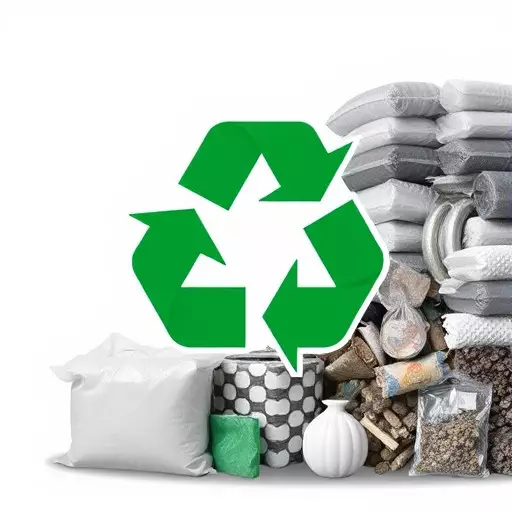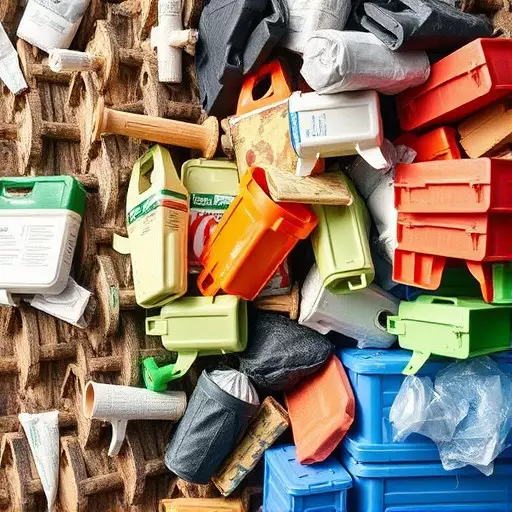ODOT in Toledo leads a green revolution in road construction by promoting the use of odot-approved recycling materials and adhering to stringent odot recycling standards. This approach significantly reduces environmental impact, diverts waste from landfills, lowers carbon emissions, and fosters a circular economy. By integrating recycled recycling materials for highways, ODOT sets a global example for sustainable construction methods, aiming to create eco-friendly infrastructure while offering cost savings and efficiency gains. Future prospects include advanced technologies like smart paving systems and self-healing concrete, all guided by Ohio's commitment to sustainability.
Green road construction is a burgeoning field focused on minimizing the environmental impact of highway projects. With increasing awareness of ecological stewardship, state departments of transportation (like ODOT) are adopting stricter recycling standards, including the use of ODOT-approved recycling materials in Toledo and beyond. This article explores these trends, delving into innovative practices such as incorporating recycled content into paving and infrastructure development while highlighting environmental benefits and addressing implementation challenges. We also look to the future, discussing advancements that could further revolutionize green road construction.
- Understanding Green Road Construction: A Growing Need
- ODOT-Approved Recycling Materials for Highway Projects
- The Role of Recycled Content in Paving and Infrastructure Development
- Environmental Benefits of Using Recycled Materials on Roads
- Implementation Challenges and Best Practices in Ohio
- Future Prospects: Advancements and Innovations in Green Road Construction
Understanding Green Road Construction: A Growing Need

In today’s world, where environmental sustainability is a pressing concern, green road construction practices have emerged as a crucial need. The traditional methods of building roads often involve harmful materials and processes, contributing to ecological degradation. As such, there is a growing demand for more eco-friendly alternatives, driven by both regulatory bodies and the public’s increasing awareness of environmental issues.
One key aspect of this shift is the use of odot-approved recycling materials in Toledo and beyond. The Ohio Department of Transportation (ODOT) sets strict recycling standards to ensure that construction projects not only minimize waste but also promote the reuse of materials. By incorporating these recycled materials into highway construction, we can significantly reduce the environmental impact, from lowering carbon emissions to preserving natural resources. This approach aligns with the global move towards more sustainable infrastructure, where every component plays a role in creating a greener future.
ODOT-Approved Recycling Materials for Highway Projects

The Ohio Department of Transportation (ODOT) prioritizes sustainability in its road construction projects by embracing ODOT-approved recycling materials toledo. This initiative aligns with their commitment to meet odot recycling standards and minimize environmental impact. By utilizing recycled materials, such as reclaimed asphalt pavement (RAP) and recycled concrete aggregates, ODOT aims to reduce the need for extracting virgin resources, thus preserving natural landscapes.
These odot-approved recycling materials toledo not only benefit the environment but also offer cost-effective solutions. Reusing existing materials reduces project expenses and shortens construction timelines. Moreover, incorporating recycled content into highway projects contributes to a more sustainable infrastructure, ensuring that these materials meet strict quality standards while promoting a circular economy for better road development practices.
The Role of Recycled Content in Paving and Infrastructure Development

Environmental Benefits of Using Recycled Materials on Roads

Using recycled materials in road construction offers significant environmental advantages and aligns with ODOT-approved recycling practices in Toledo. By incorporating these materials into highway projects, construction companies can reduce the demand for new resources, thereby minimizing the environmental impact of extracting and processing virgin materials like aggregate and asphalt. This approach supports the ODOT recycling standards by diverting waste from landfills and promoting sustainable practices throughout the construction industry.
Additionally, employing recycled materials for roads helps to lower greenhouse gas emissions associated with traditional production methods. Since manufacturing new products from scrap materials typically requires less energy, using recycled content in paving can contribute to a decrease in carbon footprint. Moreover, this practice fosters a circular economy by giving new life to discarded resources, ensuring that the region’s construction projects are not only efficient but also environmentally responsible and cost-effective.
Implementation Challenges and Best Practices in Ohio

Implementing green road construction practices in Ohio presents unique challenges, but there are also numerous opportunities to enhance sustainability and reduce environmental impacts. One significant hurdle is incorporating ODOT-approved recycling materials to Toledo into projects while adhering to strict ODot recycling standards. Construction teams often face the challenge of balancing cost-effectiveness with ecological responsibility when selecting materials for highway construction and repair.
Best practices include utilizing recycled asphalt and concrete as base materials, which not only reduces the demand for new resources but also minimizes waste from demolition projects. Additionally, employing recycling materials for highways can extend the lifespan of existing road surfaces, thereby decreasing the frequency of costly reconstruction. Ohio’s commitment to these sustainable methods is evident through its ongoing initiatives and support for innovative technologies that prioritize environmental stewardship while delivering robust transportation infrastructure.
Future Prospects: Advancements and Innovations in Green Road Construction

The future of green road construction holds immense potential with continuous advancements in technology and a growing commitment to sustainability. One promising area is the increased use of odot-approved recycling materials toledo, which can significantly reduce the environmental impact of infrastructure projects. By incorporating recycled materials into asphalt and concrete, we can lower energy consumption, minimize waste, and decrease greenhouse gas emissions associated with traditional construction methods. These eco-friendly alternatives are not only cost-effective but also contribute to Ohio’s efforts to meet recycling standards, ensuring a circular economy for road development.
Innovations in green road building technologies further enhance the prospects of making highways more environmentally friendly. Advanced techniques such as smart paving systems and self-healing concrete offer improved durability and reduced maintenance needs. Additionally, researchers are exploring ways to incorporate renewable energy sources into roads, like solar panels integrated into pavement, adding another layer of sustainability. As the demand for sustainable practices grows, the infrastructure industry is poised to embrace these innovations, shaping a greener future for highways across Ohio and beyond, guided by stringent odot recycling standards.


